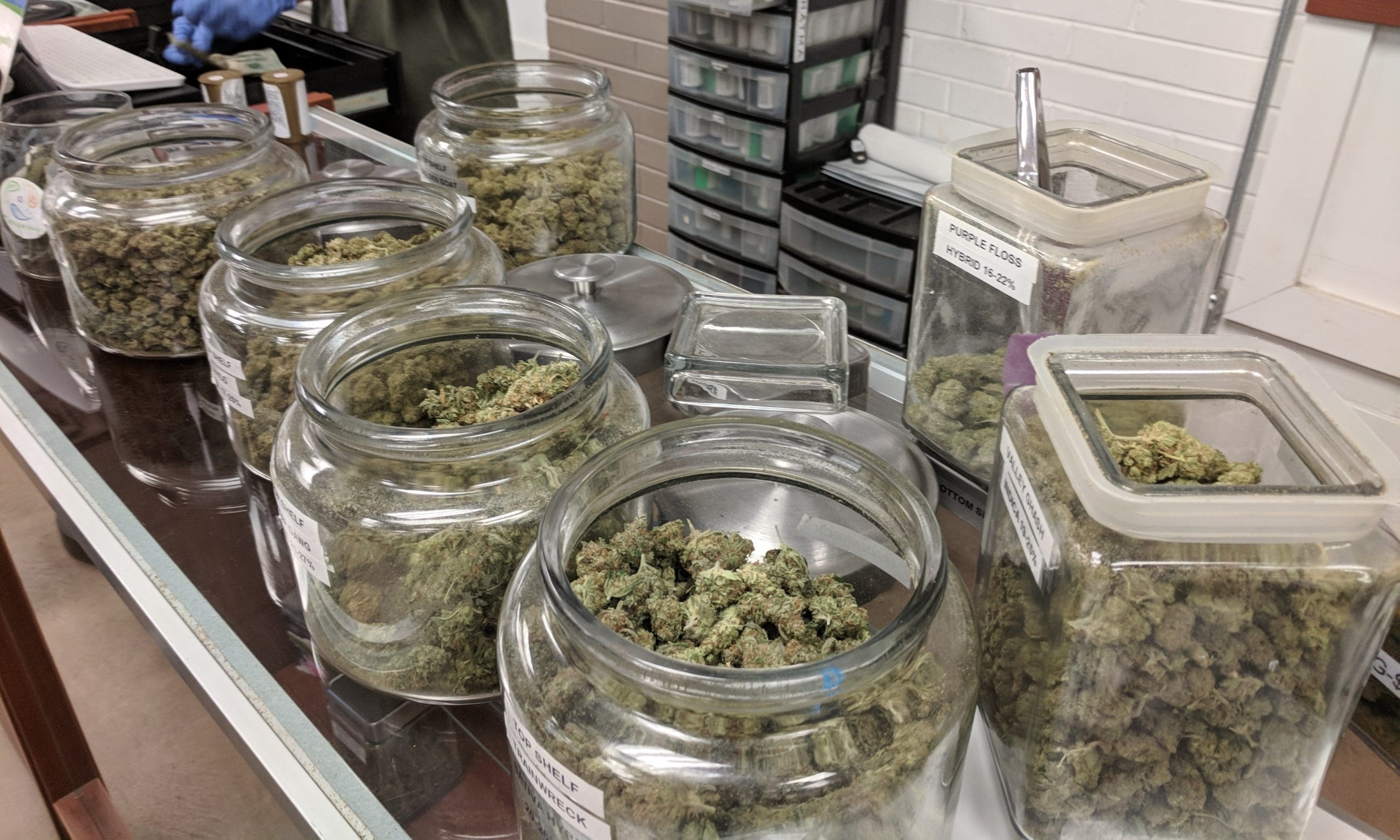Business
Marijuana Industry ‘Will Continue To Grow,’ Federal Economic Panel Says While Recommending Classification Changes

The marijuana industry will “continue to grow,” a federal economic committee said in a new series of recommendations, and that means steps need to be taken to ensure that it’s tracked more diligently under a system that enables analysts to follow markets and publish statistical data.
In proposal published in the Federal Register last week, the White House Office of Management and Budget (OMB) described policy recommendations for the 2022 update of the North American Industry Classification System (NAICS), which is used to categorize businesses and compile data on markets across the U.S, Mexico and Canada.
The suggestions include a proposal to move cannabis retailers out of a miscellaneous category and index them separately under a new category where they will be grouped with tobacco, e-cigarette and smoking shops. There were further recommendations on indexing cannabis, hemp and CBD agriculture and wholesaler companies into specific NAICS categories as well.
These might seem like nominal moves—and they doesn’t represent the broader change that industry advocates wanted to see—but it demonstrates that the federal committee behind these recommendations is acknowledging the growing legitimacy of the marijuana sector and wants to make it easier for economists to research it just like any other business category.
The U.S. Economic Classification Policy Committee (ECPC)—which is comprised of OMB, the Census Bureau, the Bureau of Economic Analysis and the Bureau of Labor Statistics—took into account several previous public comments that had urged it to restructure NAICS with respect to cannabis retailers.
One comment that was submitted by the Census Bureau itself suggested that marijuana retailers and vape shops could be split into two distinct categories. But it left open the possibility of combining cannabis shops and vape retailers together, as ECPC ultimately recommended.
“The ECPC notes there is ample evidence to suggest the retail market for electronic cigarettes, e-liquids, related accessories, and medical and recreational marijuana will continue to grow, albeit with increasing regulation at both the federal and state levels,” the committee said in response to the Census comment.
“Broadly, vape shops and marijuana shops are primarily engaged in retailing smokers’ supplies,” it continued. “Given the production process commonalities and the continual market growth, the ECPC recommends creating a new industry, titled ‘Tobacco, Electronic Cigarette, and Other Smoking Supplies Stores,’ by combining NAICS Industry 453991 with electronic cigarette shops and marijuana stores, currently classified in NAICS Industry 453998, All Other Miscellaneous Store Retailers (except Tobacco Stores).”
A Census Bureau representative summarized the main changes, telling Marijuana Moment that “marijuana stores were not identified in a separate industry in earlier versions of NAICS, and they are not recommended to be grouped in a separate industry in 2022 NAICS but rather combined with tobacco and other smoking supplies stores.”
As such, this category update wouldn’t mean that researchers could pull specific, nuanced data on marijuana businesses, as they’d still be grouped into the broader e-cigarette industry classification. Still, it would narrow the scope of data that’s currently available, which could prove useful in future analyses.
For each NAICS code, there are corresponding industry index entries—essentially itemized descriptions of what kinds of businesses fall under the category.
While cannabis retailers weren’t listed as a distinct NAICS industry the last time the system was updated in 2017, marijuana is currently listed as an index entry for other categories dealing with merchant wholesalers and crops grown “under cover” and in an “open field,” in addition to the miscellaneous category for retailers.
At the very least, this recommended update would be a symbolic step in the right direction as far as advocates are concerned, especially with the ECPC note that the cannabis sector will “continue to grow.” But industry experts had hoped ECPC would have taken another route and separated the cannabis market from tobacco or any other industry altogether.
That was the recommendation of economist Beau Whitney, who said in a 2020 comment on the issue that, “given the size of the legal marijuana market and its current influence on the U.S. economy, it is appropriate and justified to create its own set of NAICS codes, so that federal, state and local agencies, along with academic, research and business institutions will have the specific data they need to make informed, data-driven decisions.”
Beyond marijuana, the ECPC is also recommending updating agricultural and wholesaling NAICS categories to include “cannabis and hemp” as corresponding index entries. Those classifications include “Other Food Crops Grown Under Cover, 111998, All Other Miscellaneous Crop Farming, and 424590, Other Farm Product Raw Material Merchant Wholesalers,” the explanatory statement says.
Further, the committee advised adding CBD index entries to the NAICS categories “325998, All Other Miscellaneous Chemical Product and Preparation Manufacturing, 424690, Other Chemical and Allied Products Merchant Wholesalers, and 459999, All Other Miscellaneous Retailers.”
The panel also wants to modify the separate North American Product Classification System to account for CBD.
None of these changes have been codified yet, and a 45-day public comment period is now open for people to weigh in on the proposals.
In the meantime, the Census Bureau is taking its own steps to improve federal data on the marijuana industry in a different way. It announced in February, for example, that it will be adding a cannabis tax question to annual and quarterly reports that states submit in order to “modernize the survey’s content to maintain the relevancy and sustainability of these data.”
It will be asking states to share information about sales tax revenue generated by legal marijuana markets, in addition to data on licensing fees derived from the industry.
Beyond modernizing the data, reporting on state cannabis tax revenue while marijuana remains federally illegal could further demonstrate to lawmakers the economic opportunities that regulating the plant represents.
















